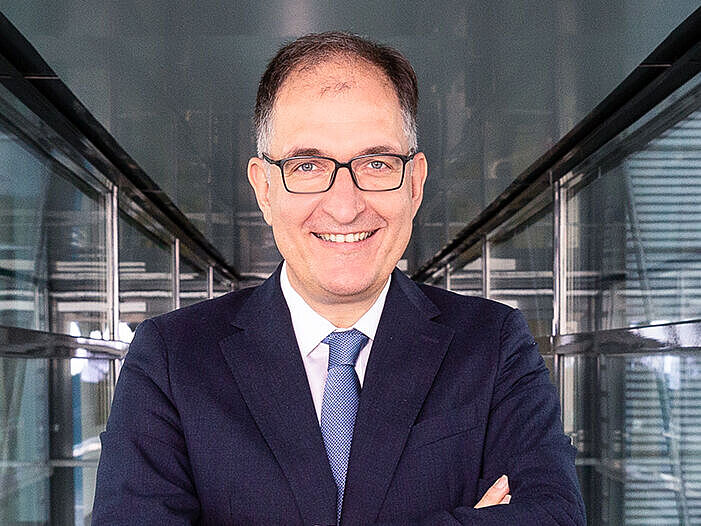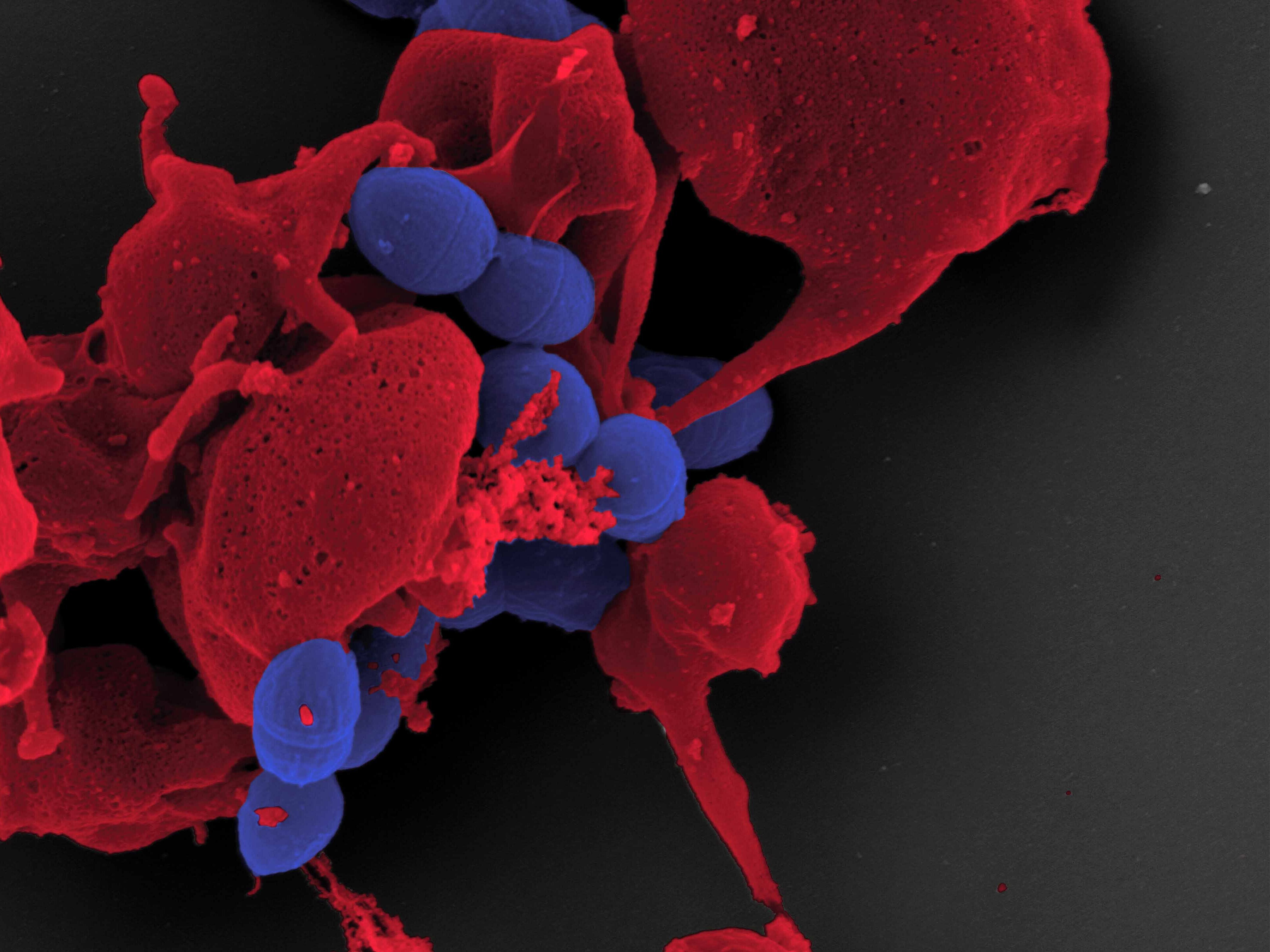Most pathogens including bacteria, fungi, and protozoan parasites carry unique glycans on their surface. Several successful bacterial vaccines based on isolated polysaccharides are marketed. Since many pathogens cannot be cultured and the isolation of pure oligosaccharides is difficult, synthetic oligosaccharide antigens prepared by automated glycan assembly provide a viable alternative.
The group has developed several semi- and fully synthetic carbohydrate vaccine candidates against severe bacterial infections, including multi-resistant hospital acquired infections such as S. pneumoniae, C. difficile, K. pneumoniae, A. baumannii and the veterinary pathogen S. suis.
Peter Seeberger studied chemistry at the University of Erlangen-Nuremberg and completed his doctorate in biochemistry at the University of Colorado in Boulder as a Fulbright scholar in 1995. Since 2009, he has headed the „Biomolecular Systems“ department at the Max Planck Institute of Colloids and Interfaces in Potsdam, is a professor at the Free University of Berlin and has been an honorary professor at the University of Potsdam since 2011. He has been an elected member of the Berlin-Brandenburg Academy of Sciences and Humanities since 2013 and Vice President of the German Research Foundation since 2021. Peter Seeberger‘s research has been published in over 650 articles, four books, more than 50 patents and more than 200 conference abstracts and presented in over 950 lectures. Among his more than 40 awards, the Science Prize of the Stifterverband (2017), the Körber Prize of the European Sciences (2007) and the Claude S. Huson Award of the American Chemical Society (2009) are particularly noteworthy.
Moderation: Professor Dr. Sven Hammerschmidt
-------
Organizational information
The Alfried Krupp Wissenschaftskolleg is offering this event live as a zoom meeting in which viewers can participate in writing via chat.
- We would be pleased if you provided your clear name when dialing into Zoom. Of course, you can also take part in the event under a pseudonym.
- A list of all participants can be viewed by all those involved throughout the event.
- During the lecture, the microphones of the spectators are all automatically muted so that no disturbing background noise is generated. You are welcome to turn on the camera of the spectators during the lecture.
- During the entire event, requests to speak or questions can be asked in writing in the chat.
Recording of the digital lecture
The digital lecture will be recorded for use in the college's media library. Only the speaker, his/her presentation and the moderator will be heard or seen in the recording. Video, audio or chat contributions are not recorded. A "REC" sign at the edge of the picture informs the participants.


